It’s your one day off, you want redfish and the conditions are crap. This is how to fish dirty water for redfish.
Dirty water is one of the worst conditions an angler can face.
I used to look at it as a show-stopper for my fishing trips, but one day I eventually learned to adapt.
I did this by changing the way I fished, since clean water methods no longer worked.
Let’s take this from the top, so you see what I do and how it makes sense.
Understanding Redfish and Dirty Water
To understand what I do, it’s important to know why dirty water is a game-changer in the first place.
Why is dirty water so bad?
Because its difficult for fish to see bait.
Knowledge Bomb
In 2009, marine biologists in Chesapeake, Virginia performed a series of tests on redfish in order to discern how good their vision is.
They learned it’s about the same as a largemouth bass, with a spectral sensitivity focusing on the color red (ours is green).
We know largemouth bass can see up to 100ft in crystal clear water, so I am assuming redfish have nearly the same visual acuity.
Redfish are primarily sight feeders.
It’s easier for them to feed when they can see bait from afar.
But if the water is dirty, they rely on their other senses in order to locate food.
- smell
- sound
- vibration
How to Fish Dirty Water for Redfish
I change my lures, apply scent and modify how I fish.
I do this for two reasons:
- to appeal to the redfish’s nose, ears and lateral line
- to cover as much water as possible
Lures
I really like a heavy duty spinnerbait with a Colorado blade.
A Colorado blade has a heavier thump than a willow.
This gives off more vibration for the redfish to detect with his lateral line.
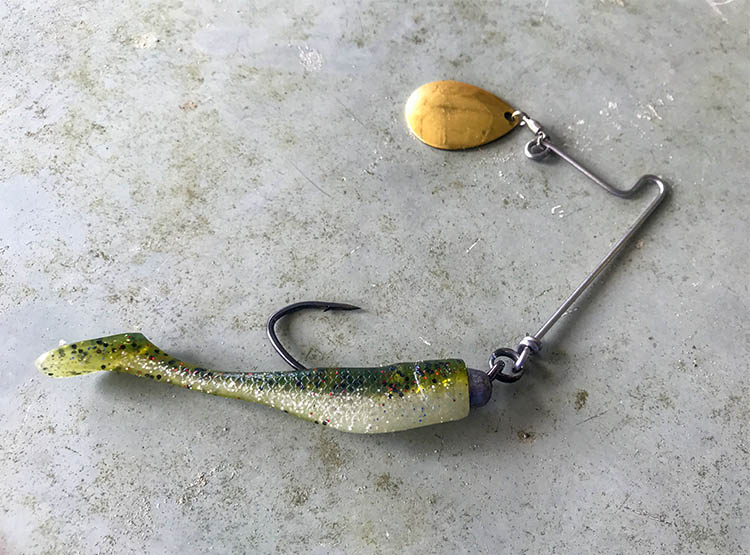
I also like to use a chatterbait, just be aware that all chatterbaits are not created equal!
The wire used for traditional chatterbaits is suited for bass, not reds.
A big redfish would destroy such flimsy wire!
In my experience, I have found the Z-man Diezel chatterbait to hold up best.
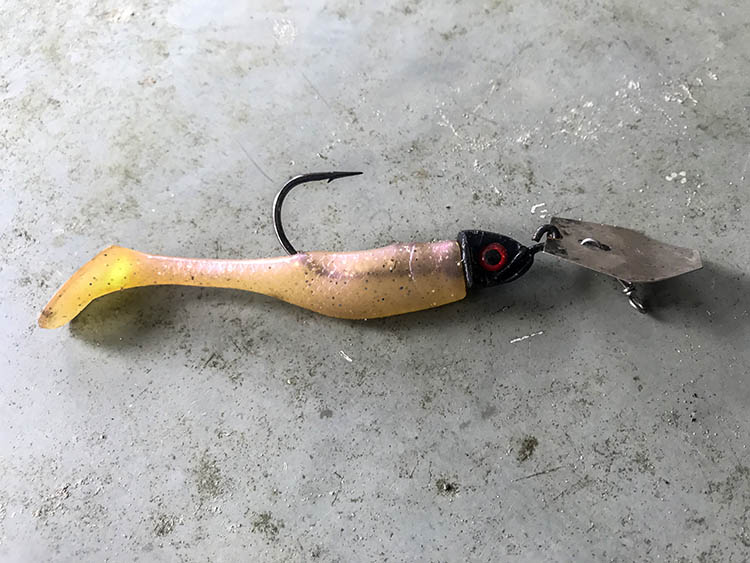
Scent
Few scents compare to the stench of Berkley Gulp!
A Gulp Shrimp in New Penny works well, especially paired with the thump of a spinnerbait.
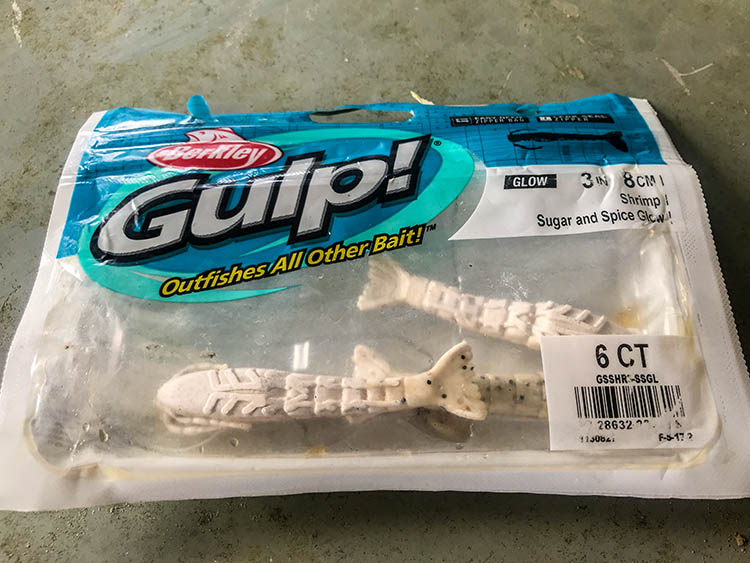
I have even seen anglers use the smaller curly tails as a trailer on gold spoons.
I’m a fan of Gulp, and it works great, but I have found Spike-It Garlic Spray to be effective, too.
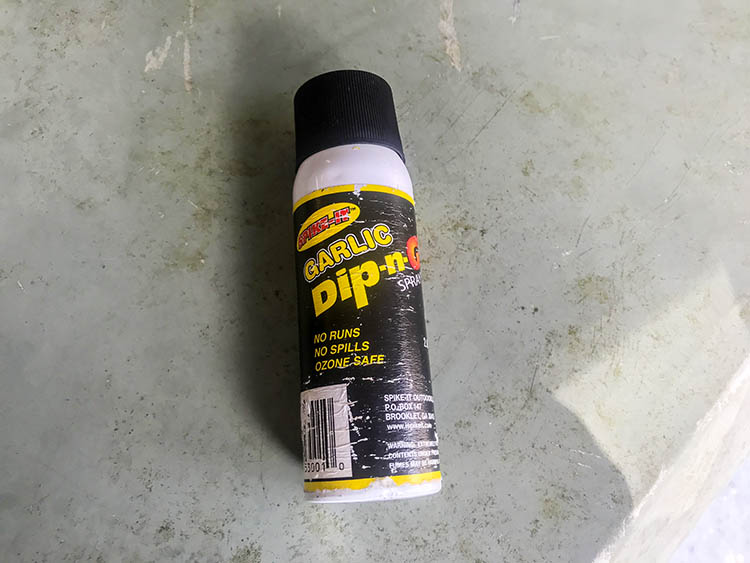
Strategy
Redfish will always go as shallow as they can, and that is where I follow them.
Note
This doesn’t mean you need a super-shallow drafting boat.
It just means that if the water is high, you want to go further back into ponds.
When it’s low, focus on where the water drained to.
I like to work “chunk and wind” on shorelines with a trolling motor.
When I do, I always put the wind to my back, because it makes my life easier.
With the wind to my back I am able to cast easily and use the trolling motor less.
If it’s not obvious, running the trolling motor spooks the hell out of fish in shallower water.
Drifting is stealthier.
I am pretty aggressive with my casting, casting and retrieving as I keep the boat moving at a moderate pace in order to cover as much shoreline as possible.
I use a baitcaster and foot-pedal trolling motor. This way my hands are free and I can make fast, repetitive, accurate casts.
But, I’ll slow down and pick apart the shoreline, casting to it and ahead of me, if I see “mud clouds”.
These “mud clouds” are indicative of redfish that spooked before I could cast to them, most likely because I was being too noisy on the trolling motor.
This doodle best explains how I move down the shoreline.
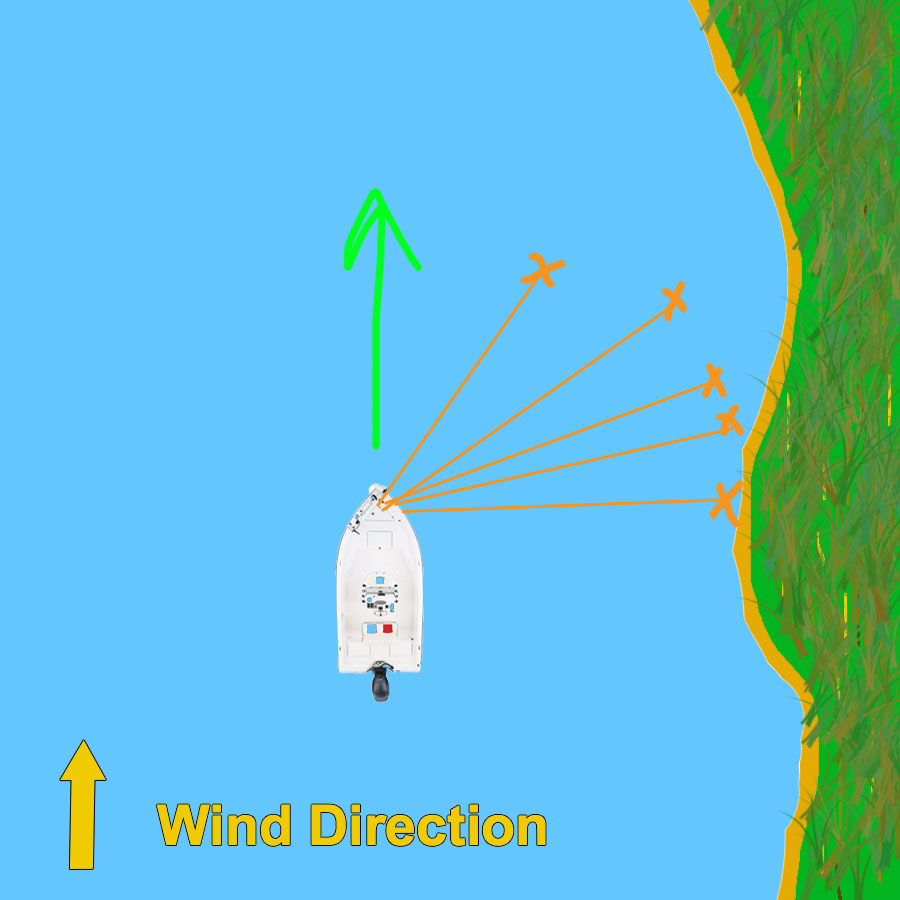
Conclusion
Redfish have a tough time seeing in dirty water, making it difficult for anglers to catch with conventional lures.
Adapting to his secondary senses helps him home in on your bait.
You don’t need casting tackle or even a foot-pedal trolling motor, but being skilled at both sure is helpful!
Comments? Chime in below.

Redfish primary way to find food is by smell, not sight.
I couldn’t agree more except for the foot control I know you are use to it but I find my hand control with my TMR works fine and I can guide the boa without running the motor that much when the wind is at my back.
I haven’t noticed.
Honestly, so many other factors come into play that it’s difficult to discern, as any fishing trip isn’t exactly scientific conditions like in an enclosed experiment.
So how do you know it was the lure color and not something else? You really can’t.
That and redfish aren’t very discerning in the first place, meaning they’ll pretty much hit anything, especially in comparison to largemouth bass.
Good info. If a redfish’s spectral sensitivity foruses on the color red, have you noticed any greater success using red lures?